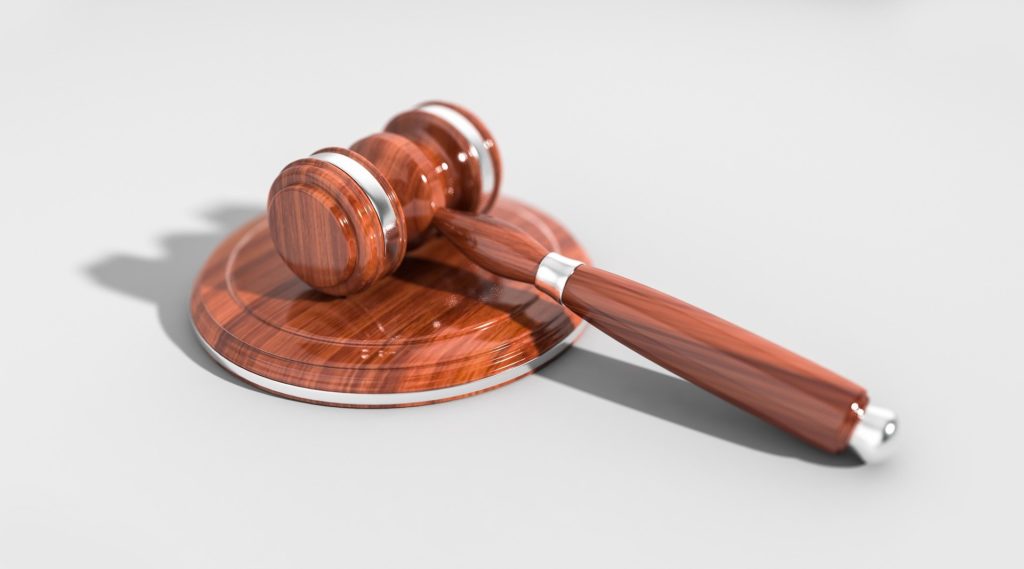What does it mean to file an injunction? These court orders prevent a person from taking a specific course of action they would otherwise be entitled to do. These orders could relate to anything from business dealings to custody cases. There are countless reasons to file a legal injunction; If you are wondering how to file an injunction without a lawyer then look no further.
Like with most legal guides, it is important to understand that this only provides an overview of the injunction process. There are different rules in every state; in some cases there could be different processes for each type of injunction available. While hiring a lawyer could be in your best interest, if you proceed on your own it is imperative that you research the injunction thoroughly before filing.
How to File an Injunction Without a Lawyer
The general process for filing an injunction is similar in most jurisdictions.
Step 1. Draft a Petition
The injunction process begins with a petition. In some cases, a petition requires little more than a sentence or two. At other times the court will require substantially more information.
Your first should be to identify the court your case should be filed in. Once you identify the court, you can contact their clerk or review their website for samples or forms. Some court clerks will walk you through every step of the process, while others will provide you with no help whatsoever. Still, it is worth looking into the resources that are available.
No matter the type of injunction, there will be specific information you will need to have handy. That includes your contact and the identity of the person or entity you are filing the injunction against.
Typically, the injunction will go into detail regarding the request. For example, an injunction related to the sale of a business should include documentation regarding its ownership and the grounds why the law requires the sale to be halted.
Step 2. File the Petition in Court
Once you complete the injunction, you must file it with the court. The process for filing an injunction differs dramatically. Some courts allow for online filing and will accept any document someone offers. Others require filing in person, and the clerks will carefully look over the pleading to ensure it complies with the rules. There is likely a filing fee for most injunctions, although some judges will waive these fees based on your inability to pay. Most courts will require a cover sheet and proposed summons to be filed with the injunction.
If the injunction is accepted by the court, the clerk will provide you file-marked copies of the the injunction along with the summons. The summons informs the other party of the first court hearing related to the injunction.
Step 3. Serve the Petition
Before you can move forward with the injunction, you must serve a copy of the injunction and the summons on the other party. This step is crucial, as faulty service could render your injunction void.
Jurisdictions vary on how process should be served. Some courts will require you to rely on the sheriff’s office for this task, while others will let you hire a private process server. The general belief is that while the sheriff is often less expensive, private process servers often provide better results. Once service is perfected, the next step is to appear at the hearing.
See Also: Is Speeding a Crime?
Step 4. Appear at the Hearing
It is unlikely that a court will grant an injunction without a hearing. Be sure to check with the process of scheduling a hearing before the judge assigned to you. Often, the summons included with your file-marked petition will include the first court date. In other cases you might have to request a hearing date from the court clerk.
Injunction hearings are typically less formal than a trial. That does not mean that there are no rules. Only experience in a particular court can tell you how much leeway from the court you could expect. At the end of the hearing, the court will make a decision. They might announce the decision during the hearing or publish it within a matter of days. When time is of the essence, the courts will typically make their ruling right away.
Injunctions in an Emergency
There are times when an emergency requires immediate legal action. While uncommon, some judges will agree to issue a temporary injunction to give the court time to determine the merits of a case. Often these emergency injunctions are heard without the defendant present.
If the court agrees to issue an emergency injunction, they will revisit the matter before making the injunction permanent. These potions are rarely used by the court, as the right of due process guarantees the affected party a day in court.
Wrapping Up
Filing an injunction may seem complex, but it is possible if you carefully research every aspect of the process. Many counties have free law libraries available to the public, and these libraries might have books of useful samples and forms to take advantage of. Use what you have at your disposal to build the strongest case possible. Reach out if you have more questions on how to file an injunction without a lawyer.



